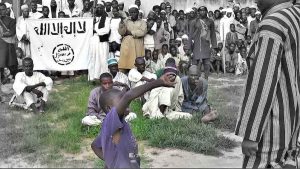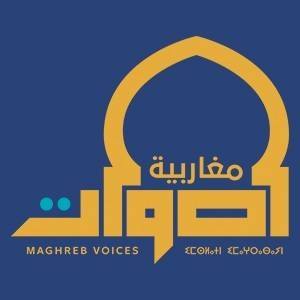BBG meeting focuses on innovative programs
The Broadcasting Board of Governors (BBG) met today to discuss Board business, review agency progress on key priorities, and receive updates on programming initiatives in Russia and the Maghreb, as well as on Boko Haram.
Today’s Board meeting was chaired by Acting Chair Ken Weinstein for the first time. The Acting Chairman praised the dedication and leadership of outgoing Board Chairman Jeff Shell, stating, “he has been critical to the transformation of the Agency. I am truly honored and excited to continue working with him, the rest of my colleagues on the Board, and CEO Lansing to further advance U.S. foreign policy priorities and our national interest.”
Acting Chairman Weinstein opened the meeting by asking for a moment of silence for two recently deceased BBG staff members and by calling for action to protect BBG journalists who are imprisoned or under attack in Vietnam, Iraq, Kyrgyzstan, Crimea, and Belarus.
BBG CEO John Lansing then asked each BBG network head to provide an update on strategic cooperation in parts of the world that most closely aligned with U.S. foreign policy such as China and North Korea, violent extremism in the Middle East, and Russian disinformation.
Tom Kent, President of Radio Free Europe/Radio Liberty, gave an overview of the 24/7 Russian-language digital network Current Time’s distribution expansion and its recent coverage of the March 26th anti-corruption demonstrations and the St. Petersburg subway attack. RFE/RL’s extensive coverage of the St. Petersburg explosion was viewed more than a million times and the video coverage was used by Reuters and BBC.
Voice of America Director Amanda Bennett debuted an arresting episode of VOA’s new Boko Haram series — “Boko Haram: Terror Unmasked,” and read a North Korean defector’s note emphasizing the importance of VOA in the region.
Brian Conniff, President of the Middle East Broadcasting Networks, noted that the network will soon launch “Maghreb Voices,” a new digital platform targeting young adults in the Maghreb region of Northern Africa. Conniff stated that the site will highlight stories trending online in the region, with a focus on hope, empowerment, and engagement instead of victimization stories commonly found on other websites.
Malule González, Director of the Office of Cuba Broadcasting, reported on the completion of survey fieldwork in Cuba. She noted the extreme difficulty in conducting research in a closed environment and will provide a full report to the Board after the results are analyzed.
Radio Free Asia President Libby Liu gave the Board a synopsis of collaboration among the BBG networks. The increased strategic alignment of programs and resources have resulted in powerful programming such as Current Time and U.S. policy events, and providing those programs to a global audience in real-time.
Ambassador Bruce Wharton, Acting Under Secretary of State for Public Diplomacy and Public Affairs, representing Secretary of State Tillerson on the Board, closed the meeting with words of support for BBG and its firewall. He applauded BBG CEO John Lansing and the Board for the agency’s impactful work and reiterated his commitment to ensuring a more efficient working relationship with the U.S. Department of State. The Board also recognized several key network anniversaries, including Voice of America’s 75th and Radio Sawa’s 15th, and will reconvene on June 14th.
About the USAGM
The U.S. Agency for Global Media (USAGM), an independent international media organization overseen and funded by the US government, puts objective, professional news and information content to work on behalf of U.S. global interests and national security. USAGM networks include the Voice of America, Radio Free Europe/Radio Liberty, the Office of Cuba Broadcasting (Radio and TV Martí), Radio Free Asia, the Middle East Broadcasting Networks (Alhurra TV and Radio Sawa) and the Open Technology Fund. USAGM programming has a measured audience of 420 million in more than 100 countries and in 64 languages.



